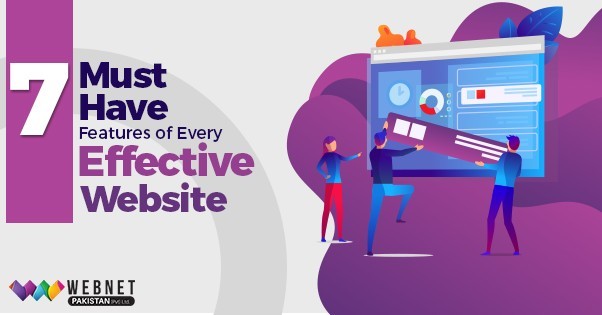Tips to Manage Administration of Websites with Huge Catalog
In today's age, websites are getting better and better, with all kinds of tools and functionality.
For business sites, the data is never ending, and to make sure everything is presented and managed well, there are some crucial steps to be taken.
To ensure you stay on the top of your game, here are 8 tips that will make site management less stressful for you
Manage Websites with a Huge Catalog
Below are some useful tips that can help you manage a heavy site, more efficiently:
- Work on a Strategy
- Keep the Code Clean
- Use the Right Plugins
- Get the Best Web Hosting
- Establish User Groups
- Keep it Simple
- Optimize Your Site
- Keep Data Organized
Now let’s go through each tip in the list and understand how it can improve site management for you.
1. Work on a Strategy
Having a clear plan before you start your business site is crucial to its management. From planning the layout to understanding the customer and their needs there is a lot to do, and without a strategy, you are bound to make avoidable mistakes.
Discuss your goals, what you want to achieve, how you plan to do it, and how your site will deliver that message to the masses.
The planning will help you find practices that work and to better manage operations with a clear mindset.
2. Keep the Code Clean
Your website is made up of strings of codes that make all the magic possible. From the smallest features to complex functions, a clean code can help keep things in check while running operations smoothly.
If your site has multiple pages and a large catalog, you should pay more attention to the code. Work with a professional developer who has experience in developing large sites.
As explained before, start with a strategy. Consider a layout and stick to it throughout the pages of your site. Having a firm plan and an efficient code which is scalable and easy to alter, can help you better manage your site.
3. Use the Right Plugins
Plugins are small pieces of code that make a certain function possible on your site. If you choose the right plugins to add to your site, many tasks can take place automatically.
While using multiple plugins can slow down your site, some plugins offer the perks of many in one place.
If you own a heavy site try the B2B for Woocommerce plugin. It’s an all-in-one plugin with multiple features to make site management easier without spending too much!
It will help you manage user roles, registrations, shopping carts, quotes, and much more.
4. Get the Best Web Hosting
When you start a website, you choose a web hosting that will give your site a location on the internet. If the hosting is right, not only will your site perform well but will also become easier to manage.
For heavy sites with a huge catalog, going for a web hosting that can cater to your needs is very important as every web hosting service under the sun is not appropriate.
Try managed web hosting services like HostGator, as they manage many tasks for you instead of you taking care of everything on your site. This gives you time to look into other tasks and work more efficiently.
Also, using trustworthy web hosting keeps your site safe, and helps you to analyze your site and analyze data for better decision making.
5. Establish User Groups
Understanding your users is very important if you want to devise the right strategies. Your marketing efforts, your site's structure, and your products, everything depends on what the customer wants.
Therefore try to figure out your ideal customers, figure out who is visiting your site, what is their preference, and how you can make it better for them.
If you work on making customer groups, your work will become easier and your efforts will go in the right direction.
Your audience includes new customers, old customers, and the target audience which needs to be reached. Making groups will help them understand the needs of each specific group and to help them in figuring out what they came for.
It can also help you attract new audiences and deliver to their needs.
6. Keep it Simple
Most of the popular websites you see have a simple and minimalistic layout. That not only looks good and professional but is also easier to manage.
A simple site is also user-friendly, therefore prioritize simplicity over going extra.
According to Forbes, considering “less is more” is helpful to maintain the customer focus and avoid clutter on the site.
Thus, keep things simple, as that makes it easier for you to maintain, and scale your site and for the user to understand and scroll through.
7. Optimize Your Site
Working hard is one thing, but working efficiently has become the need of the hour. Optimizing your site is making all of its components work faster and better.
So for example, if you use the right plugins and don't overload your site with them, your website will load faster, making it easier for customers to use it.
Website optimization includes multiple steps like optimizing content, imagery, using the right domain, hosting, etc. All these steps make your life easier and improve site performance and customer acquisition.
8. Keep Data Organized
Staying organized has become more important than ever. A website contains so much data, that it's easy to get lost, confused, and overwhelmed by the clutter.
Luckily there are plenty of ways to handle this issue and use it to your advantage. Keep a database with all your data, and make sure the hosting covers the data so your site's performance isn't affected.
Keep all your files, images, scripts, etc in an accessible place where they can be retrieved, understood, and altered as needed, that will save you plenty of time and effort.
Final Words
In this article, we explored 8 tips for on-site management when it comes to heavy sites. We understood that site management becomes easier with a strategy, proper plugins, clean code, and the right web hosting.
Keeping things simple, and organized, making user groups, and optimizing your site are all quite helpful tips in this regard.
We recommend you try out these tips and see the benefits yourself.





0 comment